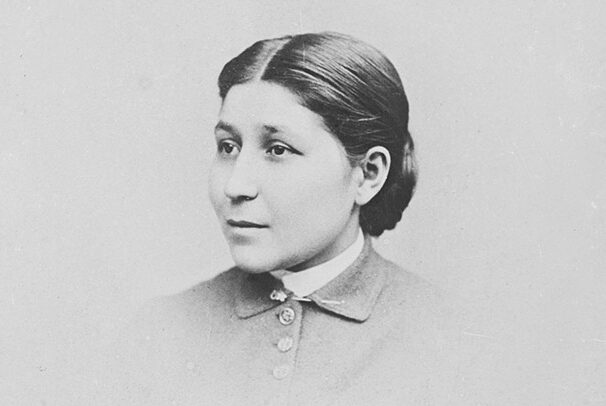With few rights as a woman and as a Native American woman, Susan La Flesche Picotte, MD, did amazing work to provide health care to her tribe, the Umonhon (Omaha) Nation. During National Native American Heritage Month, we look back at a pioneer in medicine.
Dr. Picotte was born in the summer of 1865. At the age of eight, she stayed at the bedside of an elderly woman in agonizing pain, waiting throughout the night for a doctor, who even though he was summoned four times, would never show. It was an indelible event that would live with her forever.
Encouraged by her father to pursue an education, she graduated second in her class from the Hampton Normal and Agricultural Institute in Virginia. She was fluent in English, and she could speak French and Otoe, too. She quoted scripture and Shakespeare, and she spent her free time learning to paint and play the piano.
Dr. Picotte was 21 years old when she entered medical school at the Women’s Medical College of Pennsylvania, nearly 1,300 miles from her home along the Missouri River in Nebraska.
She graduated medical school in 1889 as valedictorian of her class, as well as the first Native American doctor. She would return to Nebraska to begin her practice and to serve her people.
Upon her return to the Omaha reservation, Dr. Picotte soon found herself as the only doctor treating a multitude of patients, who often presented with tuberculosis or cholera.
Dr. Picotte would travel for hours on foot, on horseback or by buggy to make house calls. She dreamed of building a hospital for her tribe and eventually opened a private practice in Bancroft, Nebraska, where she treated both Native Americans and whites.
She led temperance campaigns to battle the ills of alcohol abuse, and counseled patients on proper hand hygiene and using screens to keep out disease-carrying flies.
But Dr. Picotte also found herself struggling to build trust among some of her patients who questioned everything about her methods and skills she learned in medical school.
She eventually married Henry Picotte in 1894 and had two sons (Caryl and Pierre). She once again defied expectations by relentlessly continuing to serve her people as their doctor, sometimes taking her children with her on house calls.
Before she died in September 1915, Dr. Picotte solicited enough donations to build the hospital of her dreams in the reservation town of Walthill, Nebraska, the first modern hospital in Thurston County.
The Leon McGoogan Health Sciences Library UNMC is planning a Susan La Flesche Picotte exhibit in the Wigton Heritage Center when it opens in the spring of 2021.

She was also the younger sister of Susette La Flesche that accompanied Standing Bear as a translator right here in the courts Omaha it was the first court ruling ever for a Native to be declared a "person" 1879. And Native Americans still did not have the right to vote in every state until 1962
Dr. Susan LaFlesche Picotte was truly a pioneer! With Omaha Native heritage in my blood and in my spirit, this gives me a tremendous amount of pride to know that someone from my tribe was the first Native American doctor! I am looking forward to the exhibit in 2021.
Thanks for sharing this Lisa. Having grown up in Bancroft, I have known the story of this outstanding, inspirational physician. Her life journey is nothing short of amazing and I would highly recommend the book, "A Warrior of the People" by Professor Joe Starita, a biography of her incredible life. I will definitely be coming to the Wigton Heritage Center this spring to view the exhibit! An amazing story of an amazing life.
M. W. "Dub" Vogt, College of Dentistry
Thank you for highlighting her and for the upcoming exhibit. She was a driving force in so many things, but not as well known as she should be.